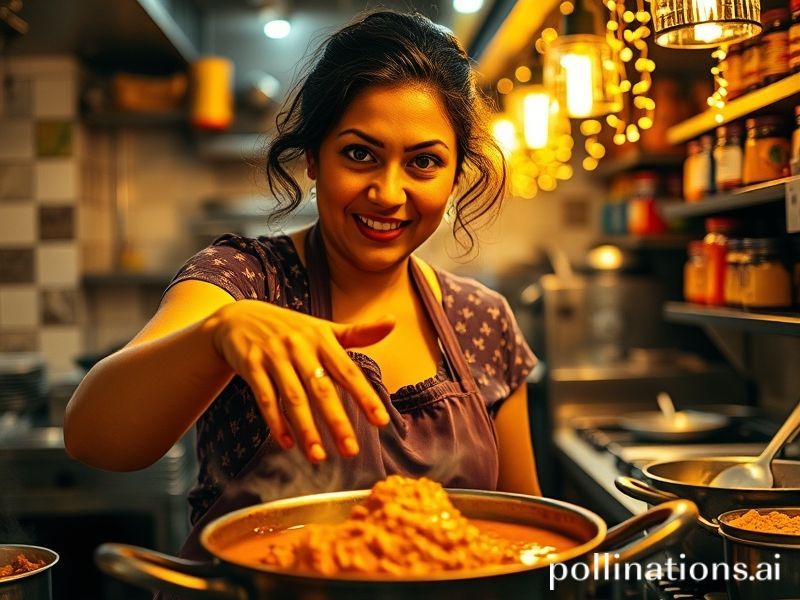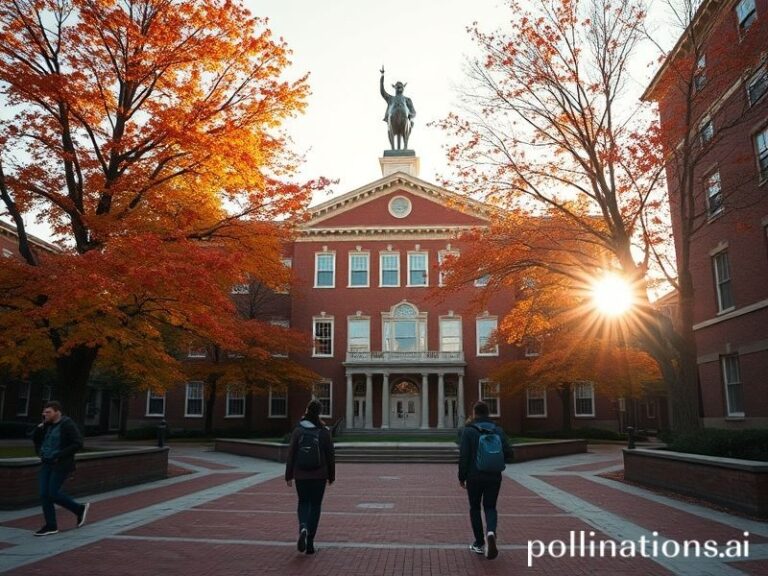Nisha Katona: The Curry Diplomat Feeding Globalization One Tamarind-Glazed Paneer at a Time
In the grand, greasy carousel of global gastronomy, where every other week a turmeric-stained chef is hailed as the Gandhi of ghee, Nisha Katona has managed the rare trick of not becoming a caricature. While the rest of us were doom-scrolling through war crimes and crypto collapses, the Liverpool-based barrister-turned-restaurateur quietly built a curry empire that now stretches from the Mersey to the Middle East, pausing only to remind Britain that “Indian food” is not, in fact, a single dish dreamed up by an algorithm trained on TikTok and colonial trauma.
Katona’s Mowgli Street Food, born in 2014 above a pub that smelled equally of ale and regret, now rattles the stock pots in Dubai, Manchester, and soon New York—because nothing says “authentic subcontinent” like a neon cow strung up between two skyscrapers in Manhattan. Each outlet is a shrine to the kind of home cooking most Indians actually eat: tamarind-glazed paneer you’d risk family feuds for, yogurt chat bombs that detonate nostalgia, and rice so fragrant it could broker a ceasefire. Yet the real miracle is how she smuggled this menu past British palates that still believe curry should glow in the dark and punish the digestive tract like a war crime.
The international press, ever eager to crown a savior, calls her the “British-Indian culinary diplomat.” That’s diplomat in the sense that she convinces skeptics to trade their Friday-night korma for goat on the bone without invoking 200 years of empire—no small feat when half the clientele think Goa is a brand of flip-flops. In an era when food nationalism is as fashionable as carbon credits, Katona’s expansion reads like a subtle act of post-Brexit subversion: if London insists on “taking back control,” she’s merely taking back the lunch menu, one thali at a time.
Meanwhile, the Gulf states—those gleaming monuments to refrigerated hubris—have embraced her chickpea canteens with the fervor usually reserved for indoor ski slopes. One can imagine Emirati influencers posing with a bhel puri the way they once posed with cheetahs in Lamborghinis: “Look, cultural depth in a paper cone!” Back home, the UK food press keeps asking whether Mowgli can “scale without selling out,” as if authenticity were a finite resource like North Sea oil. The question is academic; Katona has already franchised her mother’s recipes faster than you can say “intellectual property tribunal.”
And therein lies the darker punchline. While she flies business class to negotiate spice routes, millions across South Asia still cook the same dishes over open fires, their intellectual property evaporating with the woodsmoke. The global appetite for “heritage cuisine” has become a multibillion-dollar ledger entry, and Katona—witty, self-deprecating, Oxbridge-polished—is the perfect ledger keeper. She’ll tell you herself that her success is “just mum’s food in bigger pots,” but those pots now sit under mood lighting designed in Scandinavia, soundtracked by lo-fi beats to study colonization to.
Still, credit where it’s due: in a world where most restaurant groups are owned by private-equity firms named after Norse gods, Katona retains 80% equity and a sense of humor sharp enough to julienne an onion. When asked why she doesn’t simply retire to a villa and let the algorithms run the curry, she replies that someone has to keep telling the story “before it’s reduced to a QR code on a driverless Uber Eats drone.” There’s something almost heroic in that—like insisting on handwriting love letters while the rest of us sext via blockchain.
So here we are: the daughter of Indian doctors who fled Idi Amin’s Uganda now sells cardamom-laced hope to the same middle class that voted for Brexit, while simultaneously teaching Dubai that dinner can be more than imported wagyu and existential dread. If that isn’t globalization in a stainless-steel bowl, I don’t know what is. And if the price of admission is a slightly ironic neon cow overlooking Times Square, well—pass the poppadoms. The end of history, it turns out, is garnished with fresh coriander.







